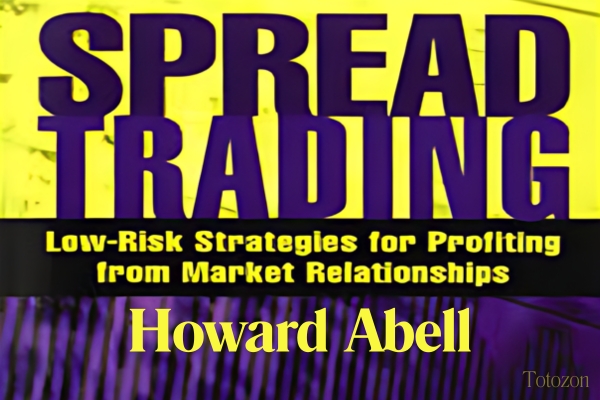-
×
 Bond Market Course with The Macro Compass
1 × $15.00
Bond Market Course with The Macro Compass
1 × $15.00 -
×
 Trading Short TermSame Day Trades Sep 2023 with Dan Sheridan & Mark Fenton - Sheridan Options Mentoring
1 × $31.00
Trading Short TermSame Day Trades Sep 2023 with Dan Sheridan & Mark Fenton - Sheridan Options Mentoring
1 × $31.00 -
×
 TRADING NFX Course with Andrew NFX
1 × $5.00
TRADING NFX Course with Andrew NFX
1 × $5.00 -
×
 The Prop Trading Code with Brannigan Barrett - Axia Futures
1 × $23.00
The Prop Trading Code with Brannigan Barrett - Axia Futures
1 × $23.00 -
×
 Deep Dive Butterfly Trading Strategy Class with SJG Trades
1 × $41.00
Deep Dive Butterfly Trading Strategy Class with SJG Trades
1 × $41.00 -
×
 Options Trading & Ultimate MasterClass With Tyrone Abela - FX Evolution
1 × $54.00
Options Trading & Ultimate MasterClass With Tyrone Abela - FX Evolution
1 × $54.00 -
×
 Best of the Best: Collars with Amy Meissner & Scott Ruble
1 × $15.00
Best of the Best: Collars with Amy Meissner & Scott Ruble
1 × $15.00 -
×
 TradeCraft: Your Path to Peak Performance Trading By Adam Grimes
1 × $15.00
TradeCraft: Your Path to Peak Performance Trading By Adam Grimes
1 × $15.00 -
×
 Crypto Trading Academy with Cheeky Investor - Aussie Day Trader
1 × $13.00
Crypto Trading Academy with Cheeky Investor - Aussie Day Trader
1 × $13.00 -
×
 W. D Gann 's Square Of 9 Applied To Modern Markets with Sean Avidar - Hexatrade350
1 × $23.00
W. D Gann 's Square Of 9 Applied To Modern Markets with Sean Avidar - Hexatrade350
1 × $23.00 -
×
 The A14 Weekly Option Strategy Workshop with Amy Meissner
1 × $23.00
The A14 Weekly Option Strategy Workshop with Amy Meissner
1 × $23.00 -
×
 High Probability Trading Using Elliott Wave And Fibonacci Analysis withVic Patel - Forex Training Group
1 × $10.00
High Probability Trading Using Elliott Wave And Fibonacci Analysis withVic Patel - Forex Training Group
1 × $10.00 -
×
 How To Read The Market Professionally with TradeSmart
1 × $27.00
How To Read The Market Professionally with TradeSmart
1 × $27.00
Spread Trading
$6.00
File Size: Coming soon!
Delivery Time: 1–12 hours
Media Type: Online Course
Understanding Spread Trading: A Comprehensive Guide
Introduction to Spread Trading
Have you ever wondered how traders manage risk and capture opportunities across different markets simultaneously? Welcome to the world of spread trading, a sophisticated trading strategy used by many to potentially profit from differences in price movements between related instruments.
What is Spread Trading?
Defining Spread Trading
Spread trading involves simultaneously buying and selling related securities to capitalize on the price difference or “spread” between them. This method is often used in commodities, currencies, and even in options markets.
Types of Spread Trading
Intra-market Spreads
These occur within the same market, such as buying one futures contract and selling another in the same commodity but with different expiry dates.
Inter-market Spreads
This type involves trading the spread between different markets, such as buying wheat futures on one exchange and selling them on another.
Options Spreads
Options spreads involve buying and selling options of the same underlying asset but different strike prices or expiration dates.
Why Choose Spread Trading?
Benefits of Spread Trading
- Risk Management: By holding long and short positions, traders can potentially reduce market risk.
- Leverage Opportunities: Spread trading can be less capital intensive, as the margin requirements are often lower.
- Market Neutrality: Spread traders can profit from the change in the spread, independent of market directions.
Considerations and Risks
- Complexity: Requires understanding multiple assets and how they interact.
- Liquidity Needs: Both legs of the trade must be sufficiently liquid to enter and exit positions smoothly.
- Potential for Slippage: Price movements may prevent the execution of trades at expected levels, affecting profitability.
How to Start with Spread Trading
Education and Research
Understanding the mechanics of spread trading is crucial. Engage with trading platforms that offer educational resources or simulation trading to practice without financial risk.
Strategy Development
Develop a trading strategy that fits your risk tolerance, investment goals, and market understanding. Test this strategy in simulated environments before live trading.
Tools and Resources
Utilize trading platforms that provide robust tools for analysis and execution of spread trades. Tools should offer real-time data, analytics, and automated trading capabilities.
Advanced Techniques in Spread Trading
Algorithmic Trading
Many experienced traders use algorithms to identify and execute spread opportunities more efficiently than manual trading.
Seasonal Trends
Certain commodities exhibit seasonal price variations, which can be predictable. Understanding these can offer strategic entry and exit points for spread trades.
Global Impact of Spread Trading
Market Efficiency
Spread trading can enhance market efficiency by correcting price discrepancies between related financial instruments.
Economic Indicators
Understanding economic indicators that influence the assets involved in spread trading can provide a competitive edge in predicting spread movements.
Conclusion: Harnessing the Power of Spread Trading
Spread trading offers a strategic approach to the markets, suitable for those looking to diversify trading strategies and manage risks effectively. Whether you’re a novice looking to explore new trading techniques or an experienced trader aiming to refine your strategies, spread trading provides a robust framework for engaging with the markets.

FAQs on Spread Trading
- What are the key benefits of spread trading over direct trading?
- Spread trading offers enhanced risk management, lower capital requirements, and opportunities to profit from market neutrality.
- Can beginners successfully engage in spread trading?
- Yes, with thorough education and practice, beginners can successfully engage in spread trading. Starting with simulation trading is highly recommended.
- What tools are essential for effective spread trading?
- Essential tools include advanced charting software, real-time market data feeds, and platforms that support algorithmic trading.
- How do economic events affect spread trading strategies?
- Economic events can lead to volatility and discrepancies in asset prices, presenting opportunities and risks in spread trading.
- What are the common mistakes to avoid in spread trading?
- Common mistakes include inadequate research, poor risk management, and neglecting to account for transaction costs.
Be the first to review “Spread Trading” Cancel reply
You must be logged in to post a review.
Related products
Forex Trading
Forex Trading
Forex Trading
Forex Trading
Forex Trading
The Complete Guide to Multiple Time Frame Analysis & Reading Price Action with Aiman Almansoori
Forex Trading
Forex Trading
















Reviews
There are no reviews yet.